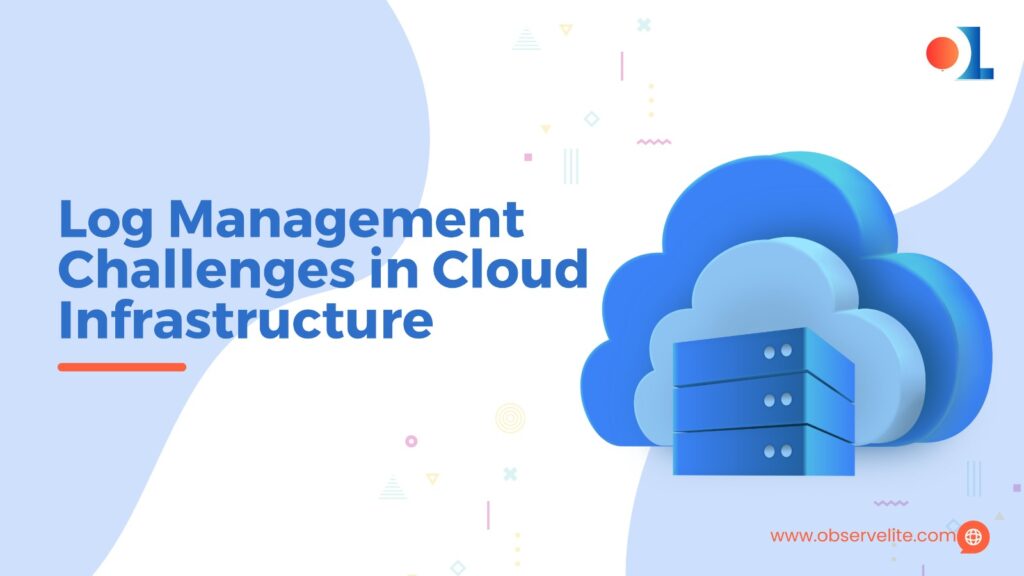Cloud infrastructure has a wide range of requirements, which makes effective log management essential for ensuring proper performance, security, and compliance. However, managing cloud logs presents unique challenges. Throughout this blog, we explore these
common challenges and offer practical solutions.
Cloud-based security for log data
Challenges:
To prevent unauthorized access and breaches, cloud log data must be secured.
Solutions:
◈ Log Data Encryption: Encryption of data both in transit and at rest is important.
◈ Implement Access Controls: To restrict the log data access, use role-based access controls.
◈ Audit Logs Regularly: Perform regular audits to find and respond to security threats
Log Volume and Data Overload
Challenges:
To prevent unauthorized access and breaches, cloud log data must be secured.
Solutions:
◈ Log Aggregation Implementation: Simplify the log data management and analysis by using tools to centralize log data from various sources.
◈ Log Retention Policies: Set policies to automatically delete old logs, This free up storage space for the future expected data.
◈ Use Compression: Compress the log files generated, to reduce storage that helps in capturing critical information.
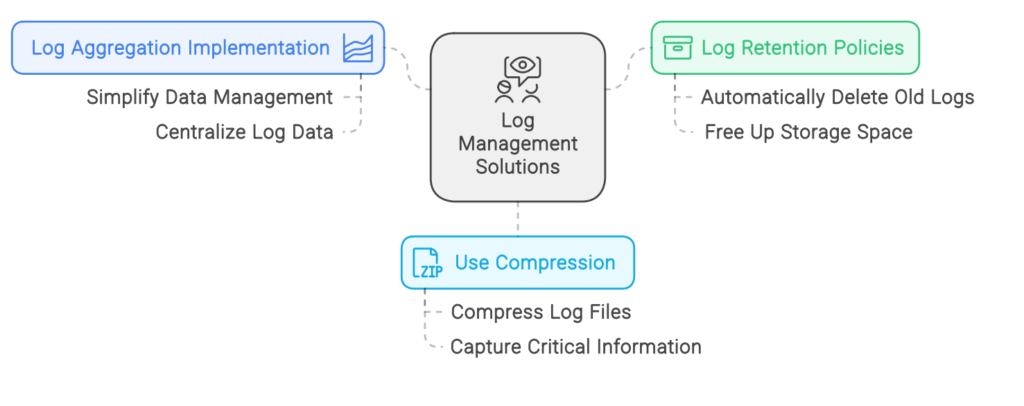
Latency Issues in Log Collection and Analysis
Latency in log collection and analysis might delay the detection of critical issues, which impacts the cloud infrastructure performance and security.
Solutions:
◈ Deploy Edge Logging: Reduce the latency by collecting and preprocessing logs closer to the source.
◈ Implement Real-time Log Processing: Use tools to analyze log data as it is generated.
◈ Optimize Network Bandwidth: Minimize the delays by ensuring sufficient bandwidth for log data transmission.

Managing Log Data from Multi-Cloud and Hybrid Cloud Environments
Solutions:
◈ Unified Logging Platforms: Implement platforms that support multiple cloud providers and standardize log formats.
◈ Integrate with Cloud-native Tools: Use the tools that seamlessly integrate across different environments.
◈ Centralize Log Management: Centralize management for a single view of log data.
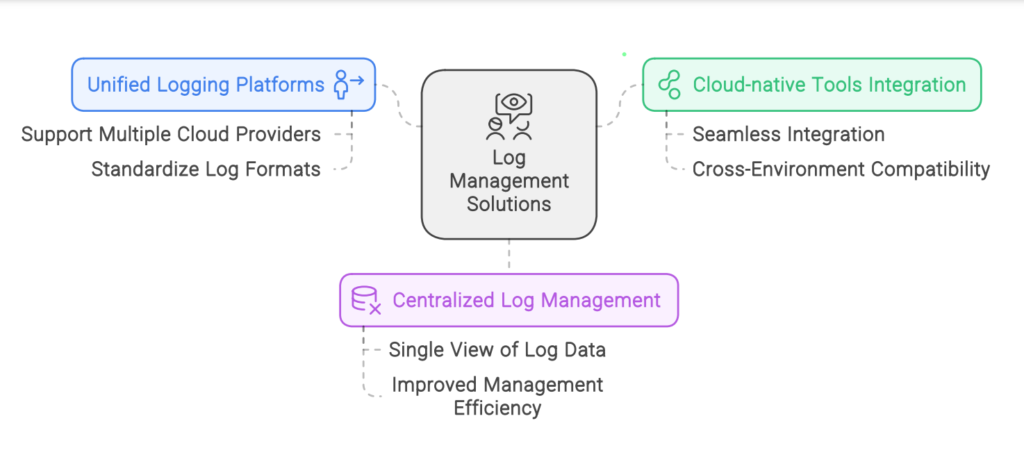
Log Data Integrity and Accuracy
Maintaining log data integrity and accuracy is crucial for monitoring and troubleshooting. However, logs can be corrupted or altered, leading to inaccuracies due to various reasons.
Solutions:
◈ Use Cryptographic Hashes: Apply hashes to log files to ensure integrity and detect alterations.
◈ Enable Logging Best Practices: Follow practices like time synchronization across servers, and standardized log formats for consistency.
◈ Implement Checksums: Regularly validate logs using checksums to detect and correct errors.
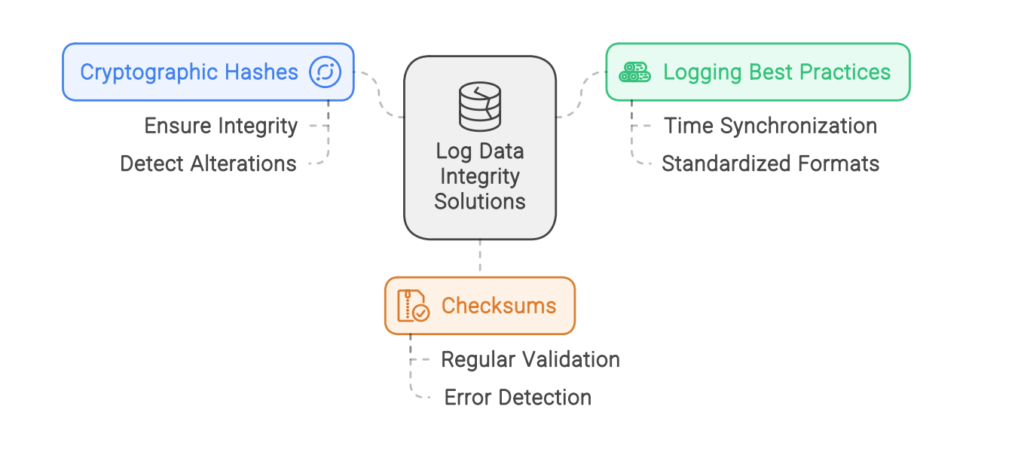
Optimizing Log Storage Costs
The cost of storing large volumes of log data can escalate quickly, necessitating cost optimization.
Solutions:
◈ Use Tiered Storage: Move infrequently accessed logs to cheaper storage options.
◈ Leverage Cloud Storage Solutions: Use scalable and flexible cost-effective cloud storage solutions.
◈ Implement Data Lifecycle Management: Automate the movement of log data through different storage tiers based on predefined policies.

Dealing with Log Noise and Redundant Data
Log noise and redundant data can obscure meaningful insights, leading to inefficiencies.
Solutions:
◈ Filter Log Data: Exclude unnecessary log entries to focus on relevant data.
◈ Deduplicate Logs: Remove redundant entries.
◈ Use Machine Learning: Employ algorithms to identify patterns and reduce noise.
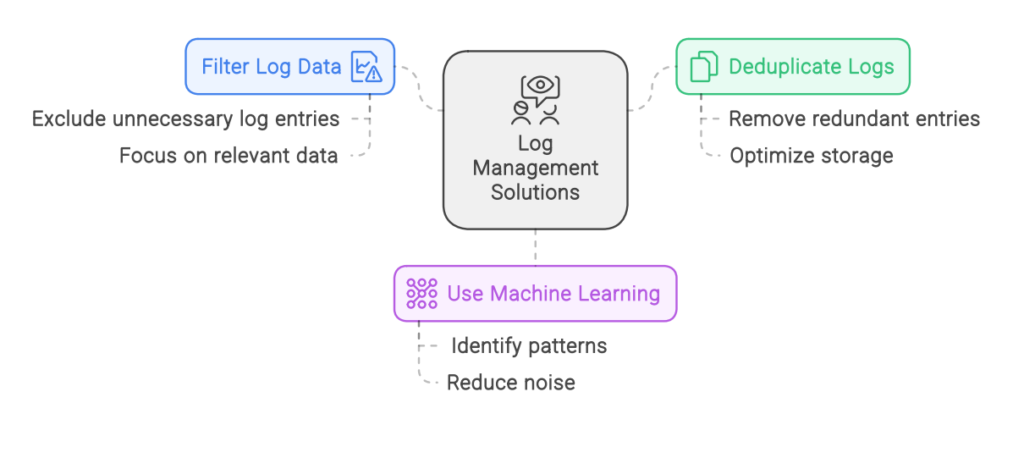
Automating Log Management Processes
Manual log management can be time-consuming and error-prone, reducing efficiency.
Solutions:
◈ Implement Automation Tools: Streamline collection, processing, and analysis.
◈ Use AI and ML: Automate log analysis and anomaly detection
◈ Schedule Automated Reports: Set up reports for regular insights into log data.

Integrating Log Management with Other Observability Tools
Integrating log management with monitoring and tracing tools can be complex.
Solutions:
◈ Use Open Standards: Adopt to applications like Observelite for easier integration.
◈ Implement Unified Dashboards: Create dashboards that consolidate logs, metrics, and traces.
◈ Leverage API Integrations: Connect different tools seamlessly with API integrations.
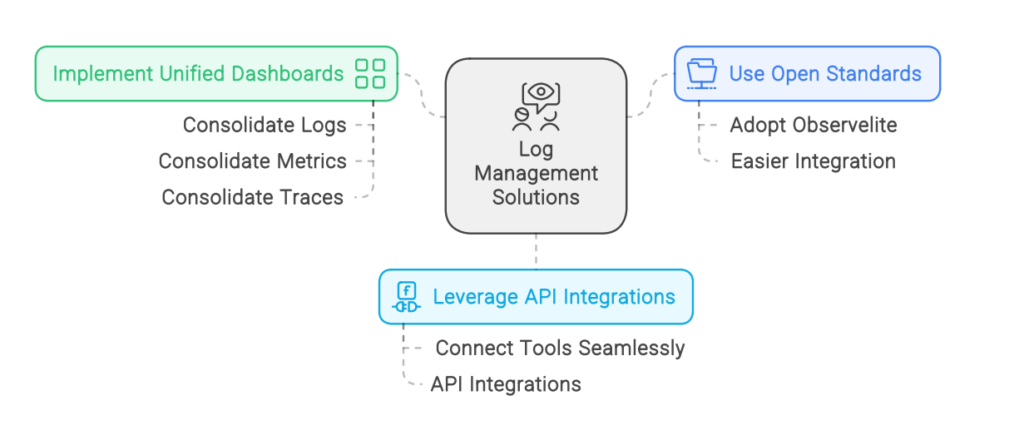
Importance of Proactive Log Management
Conclusion
Effective log management is essential for maintaining a robust and secure cloud infrastructure. By understanding and addressing common log management challenges, organizations can optimize operations, improve security, and ensure compliance. Proactive log management enhances cloud infrastructure performance and provides critical insights for future improvements. To achieve all these, opt to Observelite and reduce the stress related to log management.
